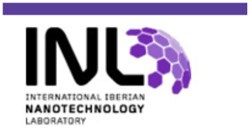
The International Nanotechnology Laboratory is the first intergovernmental organization in Europe in the field of nanoscience and nanotechnology. The INL, located in Braga (Portugal), is the result of a series of joint decisions made by the Governments of Portugal and Spain in 2005 and a strong commitment in scientific collaboration.
The INL establishes collaborations with industry partners and academic research institutions. In May 2011, it signed a scientific and technological collaboration agreement with CIBER-BBN for the purpose of capitalizing resources and giving researchers from both centres access to its equipment and facilities, undertaking to provide information to the researchers and promote the use of services, laboratories and platforms available in the other part.
The INL provides a cutting-edge research environment and promotes interdisciplinary effort to deal with the main challenges in the emerging areas of nanobiotechnology, nanoelectronics, nanomedicine and nanoscale material science.
The INL focuses on nanotechnology and considers its applications on other areas, following a truly interdisciplinary approach. The objectives of the laboratory are:
The main research activities are based on areas of excellence existing in Portugal and Spain, as well as in the new areas of strategic development.
The INL promotes the creation of spin-off companies in the competitive areas of nanotechnology and directs a programme to create awareness among or to educate the public.
Nanomedicine
Study, design and manufacture of nanoescale structures and devices for the diagnosis, treatment and prevention of genetic diseases and disorders.
Nanoelectronics
Development of technologies and devices in the “Beyon CMOS” area, focusing on the development of electronic devices (in semiconductors, magnetically, or based on photons) incorporating new materials and non-conventional structures.
Environmental monitoring, safety and food quality control
Application of nanotechnology in the food industry to create a better packaging and healthier food, as well as agricultural applications (safer and more effective administration of pesticides, herbicides and fertilizers).
Nanomachinery and Nanomanipulation
The micro- and nanomanufacturing of NEMS structures (nano-actuators, nanosensors, nano-fuel cells) aimed at the manipulation of molecules and detection of biomolecule interaction. Design, synthesis and operation of molecular objects (self-assembly, biomimetic chemistry) and the necessary instruments for interacting with these individual molecule structures, such as miniaturised optical and magnetic tweezers).